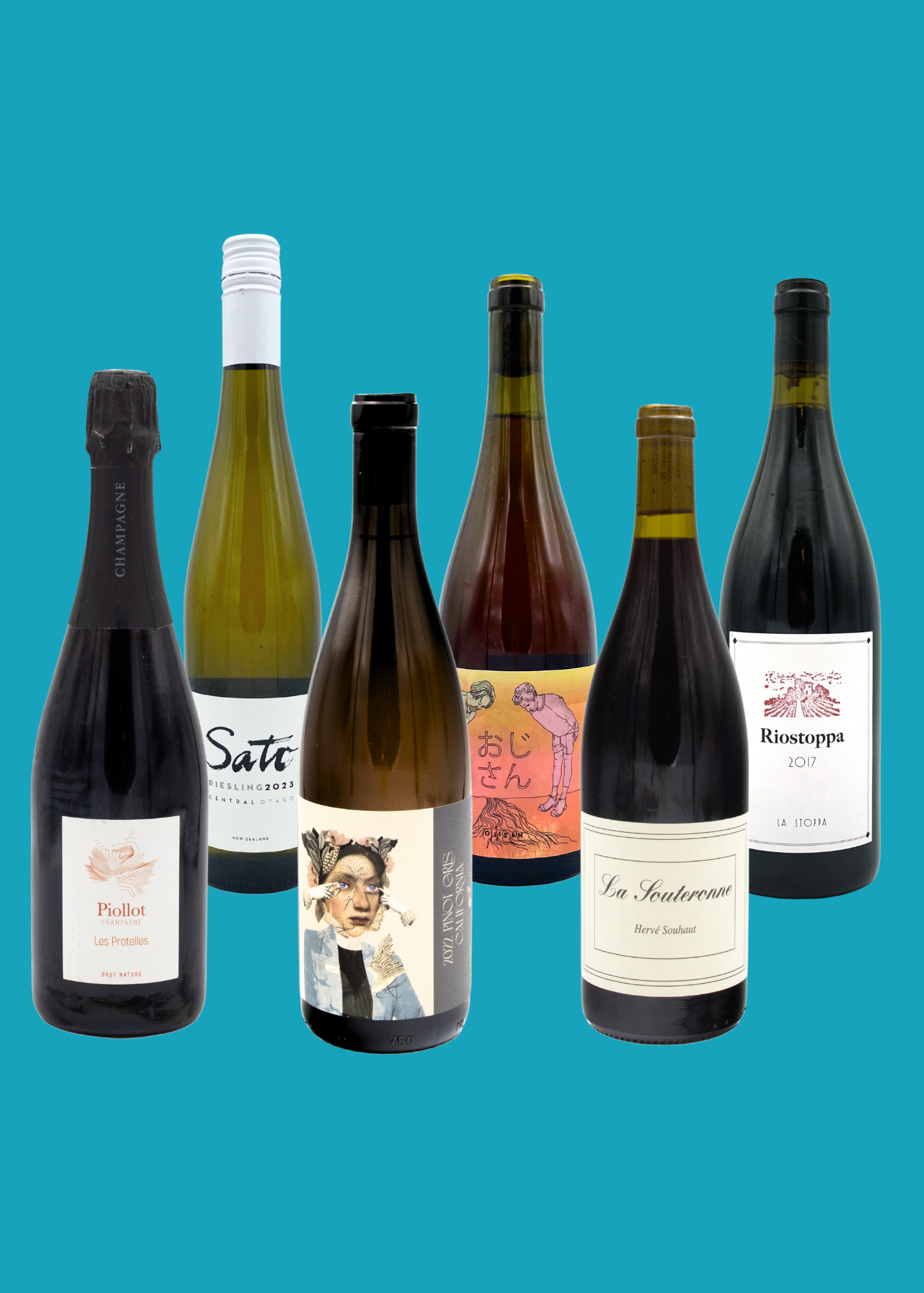DINNER PARTY COMPANIONS
DINNER PARTY COMPANIONS
Couldn't load pickup availability
Rest easy this holiday season and let us deal with your wine situation! This selection goes great with holiday foods, but are just as enjoyable by themselves. There’s a winner for everyone in this pack, from light whites to deep reds!
Roland Piollot, Les Protelles Rosé 2017
Goes perfectly as an aperitif or to wash down roast ham and apple sauce or gravy. Made from three days of skin maceration, the wine is dosed to Extra Brut. The palate holds a nice body with fine bubble.
Jolie-Laide, Pinot Gris 2022
The nose is brilliantly ripe and enticing with strawberry and some malolactic notes (cream, milk, brioche). A real gourmet Pinot Gris. Brilliant with starters, fresh salads or grilled fish.
Sato, Riesling 2023
Soft, riper citrus and stone fruit flavours, a broader, lees/carbonic-influenced mouthfeel and a soft, but lingering acidity. Try it with seafood or steam cod.
Kindeli, Ojisan Rosé 2023
The nose has a lot of gewurz influence, being quite floral with undertones of fresh red berries. The palate tells a different story, being more fruit-forward with a slight grapefruity finish. Best had with roast goose, roast pork, grilled veggies.
Hervé Souhaut, La Souteronne 2021
Savoury, red fruits and spices, eucalyptus notes and medium tannins. Perfect for a cheese platter or cold cut during the aperitif.
La Stoppa, Riostoppa 2017
Ripe cherry, smoke, mushrooms and tobacco notes. A nice Ribeye steak, slow cooked lamb or any dark chocolate dessert will pair perfectly.
Share

Organic, Biodynamic and Natural wine. What’s the difference?
To understand this concept and its various ramifications, it is necessary to keep something clear in mind: before the 20th century and the spreading of affordable synthetic fertilisers, all farming was organic. When the shift to the use of synthetics and pesticides happened, it became necessary to diversify traditional organic farming from the new modern farming.
ORGANIC WINE
Simply put, organic farming forbids the use of synthetic fertilisers, synthetic pesticides, herbicides, or genetically modified organisms. The basic requirements are generally specific and engage the farmers not to use any chemical fertilisers and other synthetic products in the vineyard. It does not prevent the vintner from using the conventional winemaking process after harvesting.
BIODYNAMIC WINE
Let’s take organic farming one step further: Biodynamic. The creator of this agricultural system is the Austrian philosopher Rudolf Steiner, who developed the principles of biodynamics in a series of lectures given in 1924 in Germany. Here lies the foundation of true organic wines, with a strict limit in the use of additives, stringent requirements and at the end obtaining a biodynamic certification.
NATURAL WINE
The previous definitions are usually, and rightfully, associated with it, because most natural wine is also organic and/or biodynamic. But not vice versa!
Natural wine is wine in its purest form, simply described as nothing added, nothing taken away, just grapes fermented. No manipulation whatsoever, minimal intervention both in the vineyards and in the winery. Healthy grapes, natural yeast and natural fermentation, with no filtration nor fining. Sounds easy, right? However, making natural wine is unforgiving and it requires a bigger amount of work than conventional wine. To this day, natural wine has no certification yet.

